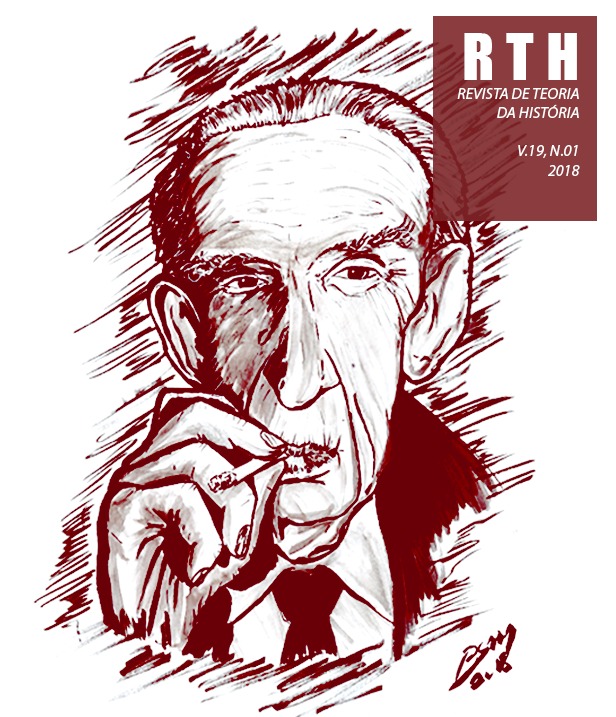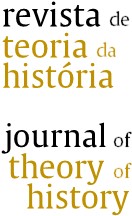CONHECIMENTO HISTÓRICO COMO FORMAÇÃO DE VALORES PARA UMA VIDA ARTÍSTICA: UMA LEITURA DE REMBRANDT ALS ERZIEHER DE JULIUS LANGBEHN
Keywords:
Bildung, identity, historicism, german historiography, pragmaticAbstract
Julius Langbehn’s book, Rembrandt als Erzieher, was published in 1890 and had an immediate editorial success. Overall, the book presented a very critical point of view about the german culture in the late nineteenth century. The refusal to the modern scientific knowledge was the center of Langbehn’s thought. This article aims analyzing Rembrandt als Erzieher based on three mean questions: the first is the analysis of the author’s conceptions on the science in the late nineteenth century. Then it is sought out to understand the relation of Langbehn’s ideas on science to his conception of historical knowledge. Finally, it is aimed to understand the connection between historical knowledge and the concept of Bildung though the pragmatical function of historiography.
References
BEHRENDT, Bernd. Zwischen Paradox und Paralogismus: weltanschauliche Grundzüge einer Kulturkritik. Frankfurt am Main: Lang, 1984.
BOLLENBECK, Georg. Bildung und Kultur. Glanz und Elend eines deutschen
Deutungsmusters. Frankfurt: Suhrkamp, 1996.
BÜRGER-PRINZ, Hans. Julius Langbehn der Rembrandtdeutsche: eine pathopsychologische Studie. Leipizig: Johann Ambrosius Bahth, 1940.
HOBSBAWM, Eric. A Era do Capital. Rio de Janeiro: Paz e Terra, 1996.
HUMBOLDT, Wilhelm von. “Theorie des Bildung des Menschen”. In: FLITNER, Andreas; GIEL, Klaus (Hgb.) Werk in fünf Bänden. Darmstadt, 1960.
KOSELLECK, Reinhardt. Bidlungsbürgertum im 19. Jahrhundert. Teil II. Stuttgart: KlettCotta, 1990.
LANGBEHN, Julius.Rembrandt als Erzieher. Weimar: Alexander Duncker Verlag: 1934.
NIPPERDEY, Thomas. Deutsche Geschichte: 1866-1918. Band I: Arbeitswelt und Bürgergeist. Munique: Verlag C.H. Becker, 1990.
NISSEN, Benedikt M. Der Rembrandtdeutsche Julius Langbehn. Freiburg im Breisgau: Herder, 1926.
PANKAU, Johannes. Wege zurück: zur Entwicklungsgeschichte restaurativen Denkens im Kaiserreich; eine Untersuchung kulturkritischer und deutschkundreicher Ideologiebildung. Frankfurt am Main: Lang, 1983.
RÜSEN, Jörn. História Viva: teoria da história: formas e funções do conhecimento histórico. Brasília: Editora Universidade de Brasília, 2007.
__________. Reconstrução do Passado. Brasília: Editora Universidade de Brasília, 2010.
STERN, Fritz. Kulturpessimismus als politische Gefahr: eine Analyse nationaler Ideologie in Deutschland. Stuttgart: Klett-Cotta, 2005.
Downloads
Published
How to Cite
Issue
Section
License
The journal publishes only and exclusively original manuscripts. All rights reserved.
Licensed under a Creative Commons Attribution-NonCommercial-NoDerivatives 4.0 International License



